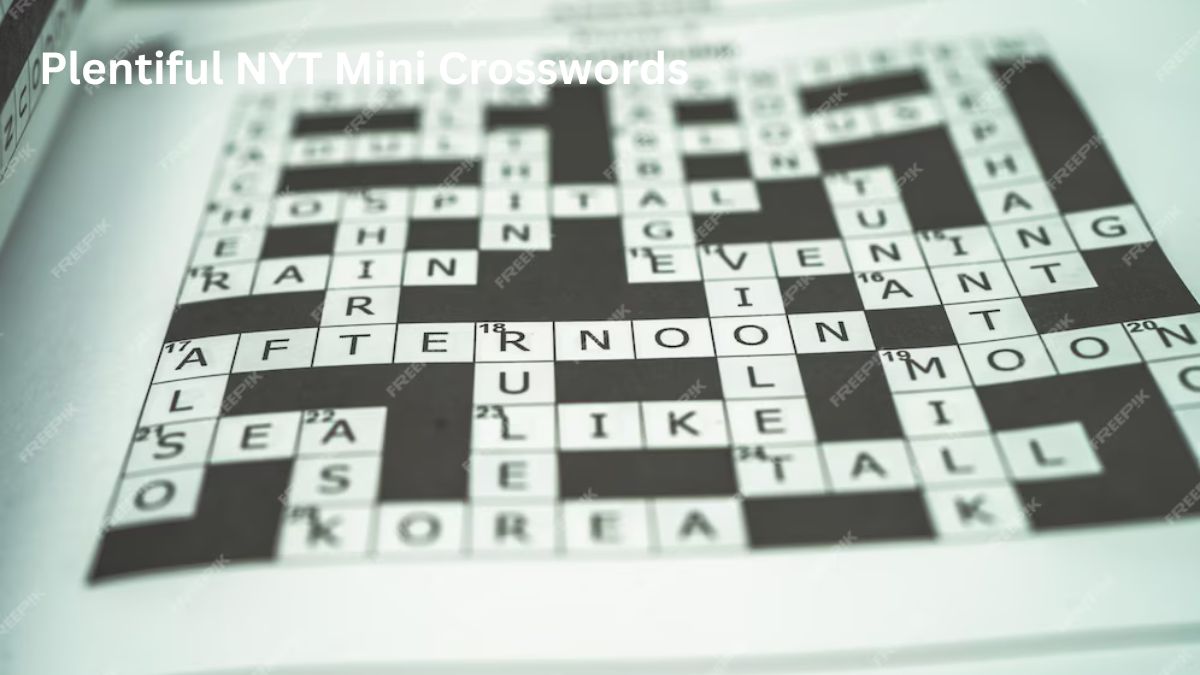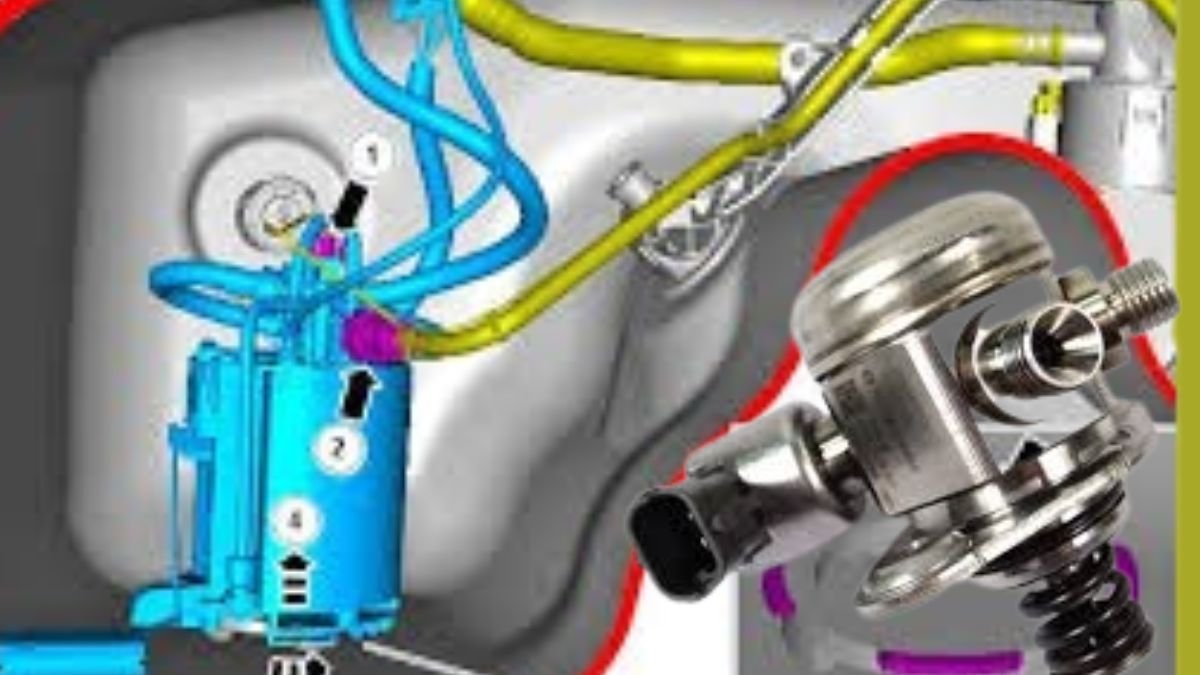The New York Times (NYT) Mini Crosswords have captivated puzzle enthusiasts around the world with their unique blend of joy and challenge. These bite-sized puzzles, designed to be completed in just a few minutes, offer a delightful break from the daily grind while also providing a significant mental workout.
The NYT Mini Crosswords were introduced in 2014 as a part of the Times’ digital puzzle offerings. Created by Joel Fagliano, these 5×5 grids were designed to provide a quick yet satisfying puzzle experience. Unlike the traditional daily crossword, which can take up to an hour to complete, the Mini Crossword is meant to be solved in just a few minutes, making it accessible to a broader audience. The simplicity and brevity of the Mini Crossword have made it a popular choice for both seasoned solvers and newcomers alike.
What Makes NYT Mini Crosswords Unique?
The NYT Mini Crosswords are unique due to their concise format and cleverly constructed clues. Despite their small size, these puzzles often feature creative wordplay and themes, making them just as engaging as their larger counterparts. The challenge lies in the economy of the grid: every clue and answer must be precise, leaving no room for filler. This compact nature demands both a sharp mind and a knack for lateral thinking, which adds to their appeal.
The Joy of Solving NYT Mini Crosswords
Solving NYT Mini Crosswords brings a sense of accomplishment and joy. Each puzzle offers a quick mental challenge, providing a rewarding experience in a short amount of time. The satisfaction of filling in the last square and seeing the completed grid is a delightful boost to one’s day. Additionally, the puzzles often include clever themes or puns, adding an element of fun and surprise. For many, solving these puzzles is a cherished daily ritual that combines relaxation and mental stimulation.
The Cognitive Benefits of Crosswords
Engaging in crossword puzzles, including the NYT Mini Crosswords, offers numerous cognitive benefits. Regularly solving these puzzles can improve vocabulary, enhance memory, and sharpen problem-solving skills. Studies have shown that puzzles can delay the onset of dementia and Alzheimer’s disease by keeping the brain active and challenged. The NYT Mini Crosswords, with their quick and challenging nature, are an excellent way to incorporate brain-boosting activities into a daily routine.
Strategies for Tackling NYT Mini Crosswords
Successful crossword solvers often employ specific strategies to tackle the puzzles effectively. One key strategy is to start with the shortest clues, which can provide hints for the longer answers. Another tip is to focus on the cross-references within the grid, using intersecting answers to fill in the blanks. Paying attention to common crossword abbreviations and word patterns can also be incredibly helpful. Persistence and practice are essential; the more puzzles you solve, the better you’ll become at recognizing patterns and decoding tricky clues.
Common Themes and Clues in NYT Mini Crosswords
The NYT Mini Crosswords often feature recurring themes and types of clues. These can range from pop culture references to wordplay and puns. Constructors frequently incorporate current events, making the puzzles timely and relevant. Recognizing these themes can provide solvers with a significant advantage. Additionally, familiarizing oneself with common crossword tropes, such as abbreviations, homophones, and anagrams, can make solving these puzzles quicker and more enjoyable.
Read Also : Jewpark Gemstone Beads Bracelet Set Elegance Meets Healing Power
The Challenge of NYT Mini Crosswords
Despite their small size, NYT Mini Crosswords can be quite challenging. The limited grid space means that every clue is tightly constructed, often requiring solvers to think outside the box. The challenge is compounded by the clever wordplay and obscure references that are a hallmark of the Times’ puzzles. This difficulty is part of what makes solving the Mini Crossword so satisfying; it is a test of both knowledge and lateral thinking.
Famous Crossword Constructors
The world of crossword puzzles has its own set of celebrities: the constructors. Joel Fagliano, the creator of the NYT Mini Crosswords, is one of the most well-known figures in this community. Other notable constructors include Will Shortz, the Times’ crossword editor, and constructors like Liz Gorski and Patrick Berry. These individuals bring their unique styles and perspectives to the puzzles, contributing to the rich diversity of the Times’ crossword offerings.
How to Get Started with NYT Mini Crosswords
Getting started with NYT Mini Crosswords is easy and accessible. The puzzles are available online through the New York Times website and mobile app. For those new to crosswords, starting with the Mini can be less intimidating than diving into the full-sized puzzles. The Mini Crosswords also come with helpful features, such as hints and the ability to check your answers, making it easier for beginners to learn the ropes. Subscribing to the Times’ digital crossword service provides access to a vast archive of puzzles, ensuring that solvers always have a fresh challenge.
Tools and Resources for NYT Mini Crosswords
There are numerous tools and resources available to help solvers with NYT Mini Crosswords. Online crossword solvers and dictionaries can assist with particularly tricky clues. There are also forums and communities where enthusiasts share tips and discuss puzzles. The New York Times itself offers various resources, including solving guides and interviews with constructors, providing valuable insights into the art of crossword solving. Utilizing these tools can enhance the solving experience and help solvers improve their skills.
NYT Mini Crossword Community and Social Media
The NYT Mini Crossword community is vibrant and active, with many solvers sharing their experiences and tips on social media platforms like Twitter and Reddit. This sense of community adds an extra layer of enjoyment to solving the puzzles, as solvers can connect with others who share their passion. Participating in these communities can provide additional motivation and support, as well as opportunities to discuss and learn from fellow enthusiasts.
Daily Routine of Solving NYT Mini Crosswords
Incorporating NYT Mini Crosswords into a daily routine can provide a consistent source of mental stimulation and enjoyment. Many solvers start their day with the Mini Crossword, using it as a quick brain exercise to kickstart their morning. Others may use it as a midday break or an evening wind-down activity. Regardless of when you choose to solve, making the Mini Crossword a regular part of your day can help maintain cognitive sharpness and provide a daily dose of fun.
Balancing Challenge and Fun in NYT Mini Crosswords
One of the great strengths of the NYT Mini Crosswords is their ability to balance challenge and fun. The puzzles are designed to be engaging without being overwhelming, providing just the right amount of difficulty to keep solvers interested. This balance is crucial for maintaining long-term interest and enjoyment. While some puzzles may be more challenging than others, the overall experience is one of satisfaction and delight, making the Mini Crossword a perfect daily puzzle.
Testimonials from Crossword Enthusiasts
Many crossword enthusiasts have shared their positive experiences with NYT Mini Crosswords. For some, the Mini Crossword is a cherished daily ritual that provides a sense of accomplishment and relaxation. Others appreciate the mental challenge and the opportunity to improve their vocabulary and problem-solving skills. These testimonials highlight the wide appeal of the Mini Crossword and its ability to bring joy and satisfaction to solvers of all ages and skill levels.
The Role of Technology in NYT Mini Crosswords
Technology has played a significant role in the popularity and accessibility of NYT Mini Crosswords. The digital format allows for easy access and instant feedback, making the puzzles more engaging and user-friendly. Mobile apps and online platforms provide solvers with the convenience of solving on the go, whether on a commute or during a lunch break. This technological integration has helped to broaden the audience for crosswords, introducing new generations to the joys of puzzle solving.
Competitive Crossword Solving
For those looking for an extra layer of excitement, competitive crossword solving offers a thrilling challenge. Events like the American Crossword Puzzle Tournament bring together top solvers from around the world to compete for prizes and recognition. These competitions highlight the skill and speed required to solve puzzles under pressure, showcasing the talents of the best in the crossword community. For enthusiasts, participating in or following these competitions can add an exciting dimension to their love of puzzles.
Incorporating Crosswords into Education
Crosswords can be a valuable educational tool, helping students develop critical thinking and language skills. Teachers can incorporate NYT Mini Crosswords into their curriculum to make learning more interactive and fun. The puzzles can be used to reinforce vocabulary, spelling, and problem-solving abilities, providing a practical application of classroom knowledge. Additionally, the collaborative nature of solving puzzles can foster teamwork and communication skills among students.
The Future of NYT Mini Crosswords
The future of NYT Mini Crosswords looks bright, with continued innovation and growth on the horizon. Advances in technology will likely bring new features and enhancements to the solving experience. The growing popularity of puzzles and the increasing interest in mental wellness activities suggest that the Mini Crossword will remain a beloved pastime for years to come. As more people discover the joy and challenge of these puzzles, the community of solvers will continue to expand and thrive.
Crossword Puzzle Awards and Recognitions
Crossword puzzles, including the NYT Mini Crosswords, have received numerous awards and recognitions over the years. These accolades celebrate the creativity and skill of the constructors and the impact of the puzzles on popular culture. Awards such as the American Crossword Puzzle Tournament trophies and the Inkpot Award for Will Shortz highlight the significant contributions of individuals and organizations to the world of crosswords. These recognitions underscore the importance and enduring appeal of crossword puzzles.
Conclusion
The NYT Mini Crosswords offer a perfect blend of joy and challenge, making them a beloved daily ritual for puzzle enthusiasts. Their concise format, clever clues, and engaging themes provide a satisfying mental workout in just a few minutes. Whether you’re a seasoned solver or a newcomer, the Mini Crossword is an accessible and rewarding way to sharpen your mind and enjoy a moment of relaxation. Embrace the joy and challenge of the plentiful NYT Mini Crosswords and discover why these small puzzles have such a big following.
Read More : How Eye_Rene845 is Pushing the Boundaries of Digital Art
Frequently Asked Questions
What makes NYT Mini Crosswords different from regular crosswords?
NYT Mini Crosswords are smaller and designed to be completed quickly, offering a concise yet challenging puzzle experience.
How can I improve my crossword-solving skills?
Practice regularly, focus on common crossword patterns, and utilize online resources and communities for tips and strategies.
Are there any tools to help with difficult clues?
Yes, there are online crossword solvers and dictionaries that can assist with tricky clues. The New York Times also offers solving guides and hints.
Can solving crosswords improve cognitive abilities?
Yes, regular crossword solving can enhance vocabulary, memory, and problem-solving skills, and may help delay cognitive decline.
Where can I find NYT Mini Crosswords?
They are available on the New York Times website and mobile app, with a subscription providing access to a vast archive of puzzles.
Is there a community for NYT Mini Crossword solvers?
Yes, there are active communities on social media platforms like Twitter and Reddit where solvers share tips and discuss puzzles.











